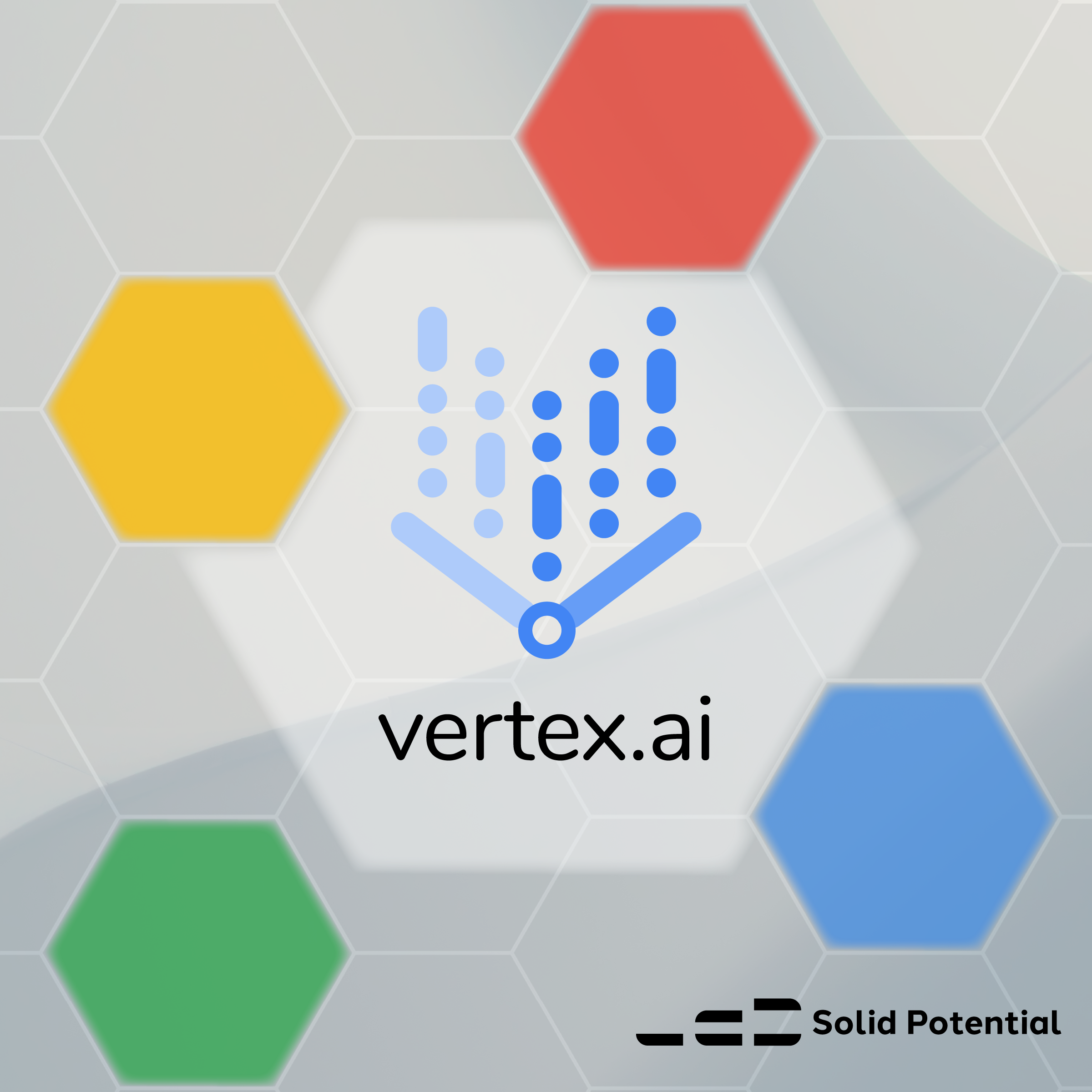Search our Blog

AI in your Workspace.
On 14th March 2023, Google announced that they’re bringing the power of generative AI to developers and businesses through its Google Cloud and MakerSuite, and AI composition for Google Workspace. The previews include automated email, AI modeling, and developer tools.

The power of Vertex AI at your fingertips.
Developed by Google Cloud, Vertex AI is a powerful platform designed to simplify and streamline the ML workflow. In this article, we'll take a closer look at what Vertex AI is, what it can be used for, and how it can benefit businesses looking to leverage the power of machine learning.

The rival for ChatGPT.
In light the massive popularity of ChatGPT, an emergence of a competitive AI-based chatbot was only a matter of time - and it’s already happening. Google Bard was made public on February 6 of this year in a statement from Google and Alphabet CEO Sundar Pichai. Everything we know about the upcoming competition for ChatGPT at the moment is fueling the anticipation of its public release, and we can only hope that the new chatbot will live up to the hype. Are you as excited as we are?

The future in fighting inflation with AI.
AI has the potential to revolutionize the way businesses and governments combat inflation. By leveraging the power of advanced algorithms and machine learning techniques, organizations can gain new insights into economic trends and make more informed decisions about monetary policy.

AI and ML for Earth’s rescue.
Artificial intelligence (AI) and machine learning (ML) are two increasingly relevant technologies in studying Earth's climate change and developing solutions to alleviate its adverse effects. From accessing crucial climate data in a standardized and straightforward way and analyzing data from climate sensors to optimizing the performance of renewable energy systems, let’s explore how AI and ML are being used to fight the environmental crisis.

More than ChatGPT.
From personal assistants to self-driving cars and smart home devices, the applications of AI are becoming increasingly prevalent in our everyday routine. With the ability to learn from and make predictions based on large amounts of data, we’re experiencing AI being used in everything from e-commerce and social media to healthcare and finance, making our lives more convenient and streamlining processes across many industries. Let’s explore both AI's most well-known and less obvious everyday uses.

How to combat AI bias?
The question remains whether we can eradicate AI bias when it’s virtually impossible to do that among humans. Humans create AI, choose the (socially generated) data for its training, and unintentionally embed biases. The picture that these facts paint for the future of AI is a bit grim, so we’ve decided to present a few ways and methods to minimize and hopefully someday eliminate it.

Every neural network is biased. True or false?
Creating non-biased algorithms is a complicated matter and a goal that we’re still far from achieving. To do that, the data has to be bias-free, and the engineers creating these algorithms need to ensure they’re not leaking any of their own biases. Needles to say, that AI tends to reflect human societal prejudices.

IoT influences our reality
There are more than 7 billion IoT-connected devices today, and experts estimate that this number will grow to 10 billion by 2020 and 22 billion by 2025. Asset-intensive enterprises like utilities, oil, gas, energy, manufacturing, and construction are progressively deploying IoT solutions to conduct operations with greater productivity and decreased costs. At the same time, retailers, cosmetics producents, and healthcare providers use it to improve their testing, safety standards, and customer experience.

A SOLID look on AI Booster
Some time ago, Google publically announced the success of the AI Booster project. It is a collaboration built on top of Google Cloud Platform and Vertex AI. The project involved Vodafone and Google, along with other partners.

AI Platforms with Kubeflow
Solid Potential DevOps Engineers delivered a Kubeflow deployment on Google Cloud’s Kubernetes Engine. The solution includes an array of features, including authentication, scaling, and cost management. This infrastructure-as-code solution gave our customer a unified solution to train ML models and was a big stepping stone toward adopting AI in the company.
